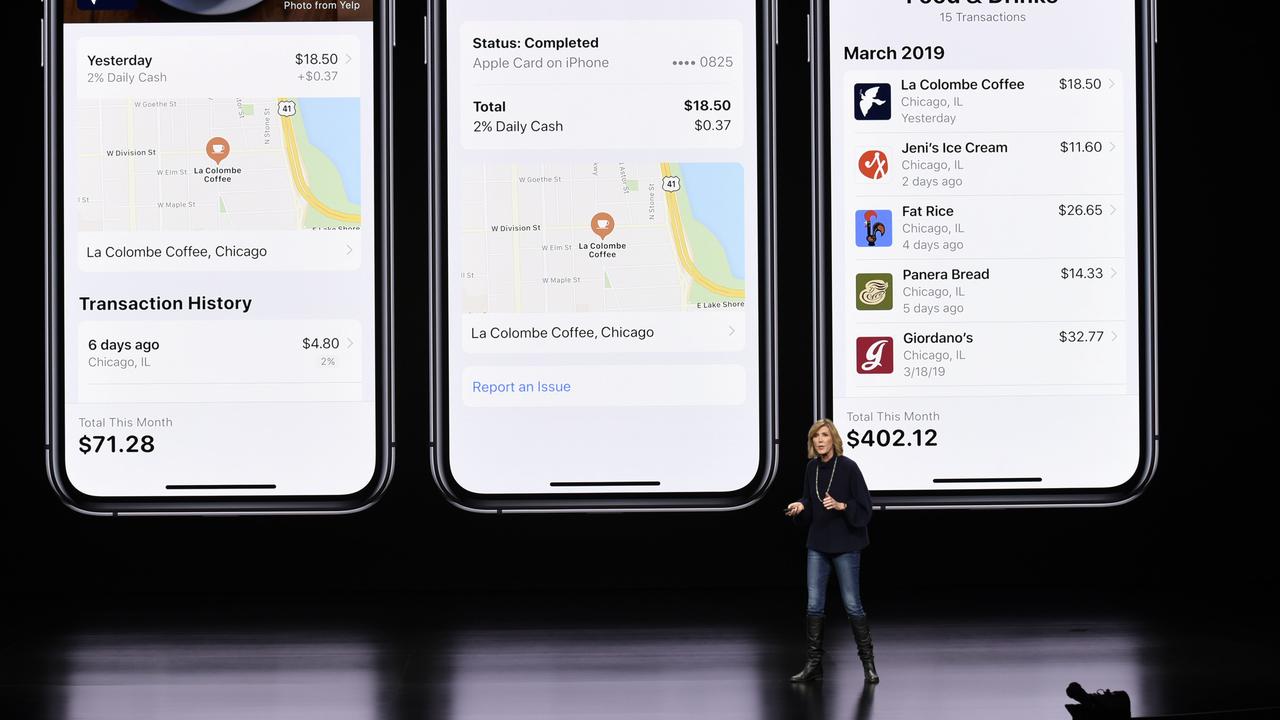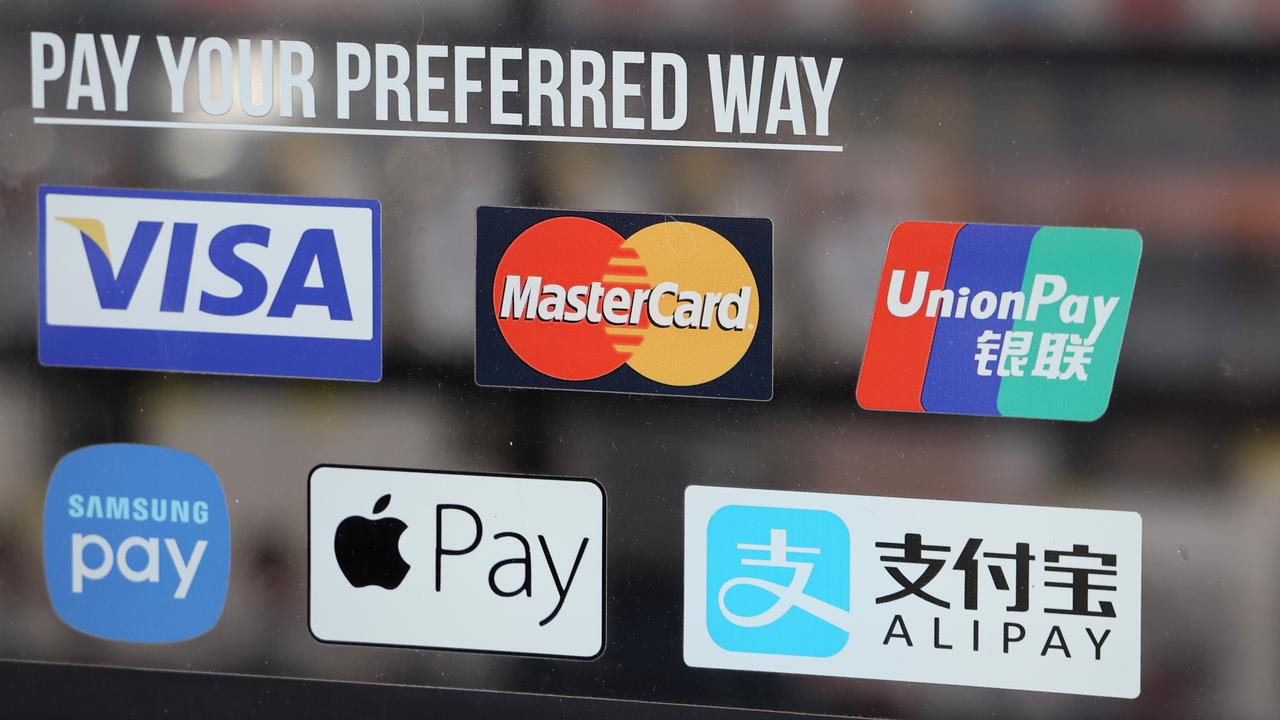Apple adds Australian private health cards to Apple Pay in its latest move to kill the wallet
Apple is making another change to its Wallet app in iPhones and Watches that will affect anyone with a health insurance card.

Gadgets
Don't miss out on the headlines from Gadgets. Followed categories will be added to My News.
Australians are as close as one digital ID card away from ditching their physical wallet completely.
After more than 18 months of encouragement to touch less cash and tap-and-pay more often, the adoption of smartphone wallets has almost doubled.
One major bank now predicts digital wallets will be the most popular contact-free method to pay for goods in stores by Christmas. And Apple Pay internet services vice president Jennifer Bailey says it’s beginning to look like Australia will be one of the first countries to make the switch from dog-eared purses to wallet apps at the register.
So how will it work for the regular shopper?
IT CAN STORE HEALTH FUND, CREDIT AND DEBIT CARDS
Apple gave local users an extra incentive to leave their real-world wallets behind last week, signing deals with Australian health insurance firms to digitally add their cards to Apple iPhones.

In a world-first, providers Medibank, Bupa, NIB and GU Health launched digital cards that could be added to Apple’s Wallet, while HBF announced plans to join in early August.
The group of health funds represent two-thirds of the market and the deal comes after Apple signed up the big four banks to its digital wallet, as well as services from more than 100 other providers including buy-now-pay-later providers Afterpay and Zip.
Bailey says the number of financial firms to join the platform, as well as support from gift and loyalty card providers, has encouraged many to try a digital wallet for the first time. Covid also plays a role, she says.
IT CAN BE MORE COVID-SAFE THAN CASH
“On a global basis, we’ve seen great acceleration in the use of Wallet and the use of payments. We think it’s the safest way to pay in this environment where you really don’t want to be touching terminals,” Bailey says.
“Australia was already a very strong market for Apple Pay and contactless (payments) but I do think (the pandemic increased) the adoption even further and we’re seeing that pretty consistently on a global basis.”

The Commonwealth Bank, which offers digital wallet support for Apple, Samsung and Google Pay, reported digital wallet payments soared by 90 per cent in Australia in the year to March 2021 – up from 36 million to 68 million transactions.
CBA everyday banking executive general manager Kate Crous says it appears Australians are also getting comfortable spending more with a digital wallet as “the average amount being spent using digital wallets continued to rise”.
The bank predicted digital wallets would become the most popular contactless method of payment by the end of the year.
Apple, which launched its payment solution in 2015, is trying to speed up the transition by adding more partners to its Wallet and, by extension, removing the need for cards in your old wallet.
Already, public transport services in NSW can be paid for with a digital wallet, as can train fares in Brisbane and light rail transport on the Gold Coast as part of a trial.
Hyatt Hotels also launched support for room keys inside Apple’s Wallet in June.
NOT A TOTAL REPLACEMENT – YET
Apple is now working with US state governments to support a digital driver’s licence, Bailey says, and “we plan to extend that support internationally” to replace another important reason why people are still holding on to old wallets.

“Replacing the wallet is very dependent on our partners, governments, supporting things like government IDs, and transit operators supporting the infrastructure they need,” she says.
“But the momentum is behind us. A few years ago we had to work a lot harder to really understand the benefits and the investments required.
“I think Australia could be one of the first, honestly.”
There are other hurdles for all digital wallets to overcome, however.
One of those is Australian Medicare cards, which can currently be accessed digitally through the Centrelink app but not in a wallet.
Another hurdle for providers, including Apple, will be potential regulation from the ACCC, which recently said it was concerned about the company’s future dominance of digital payments using iPhones.
More Coverage
Originally published as Apple adds Australian private health cards to Apple Pay in its latest move to kill the wallet









